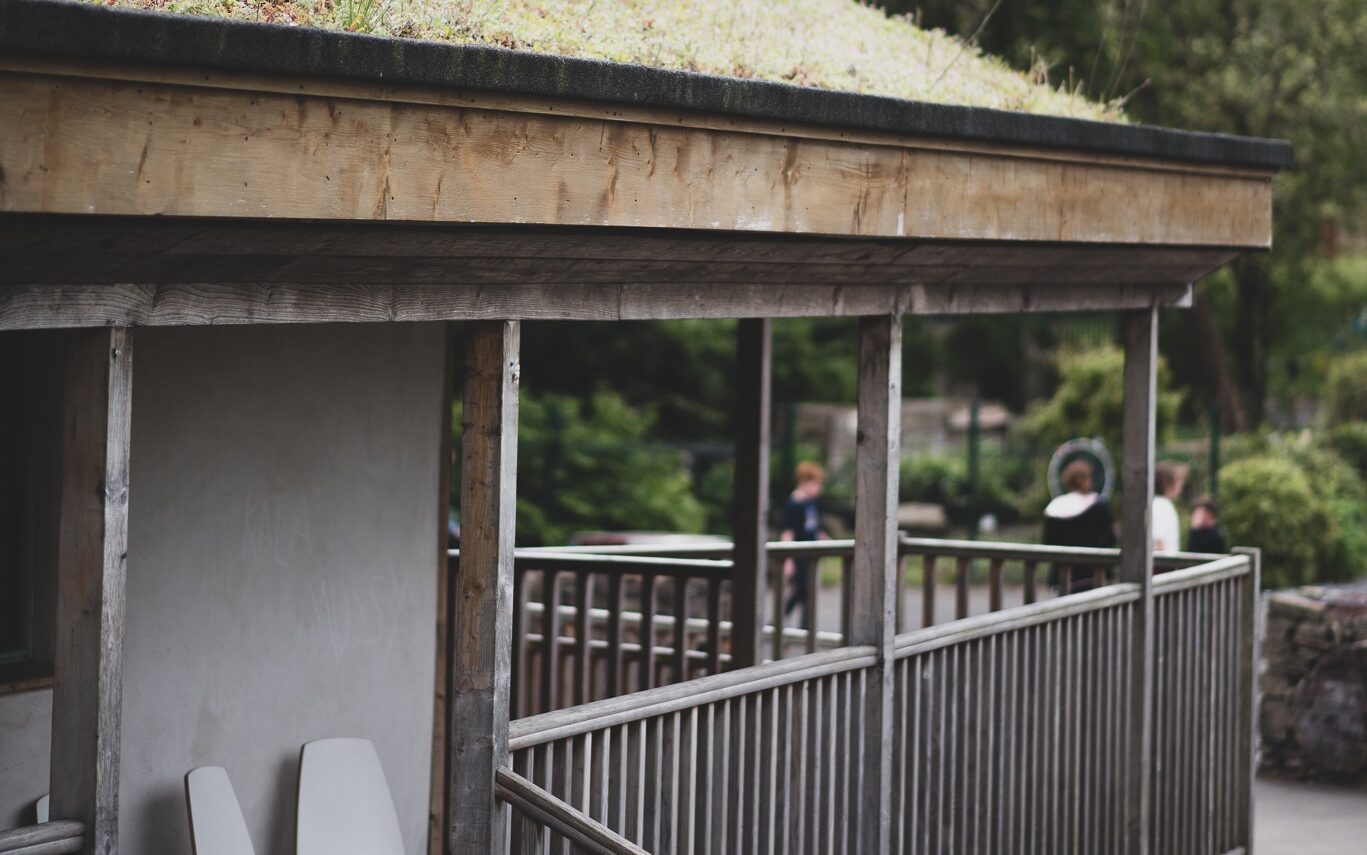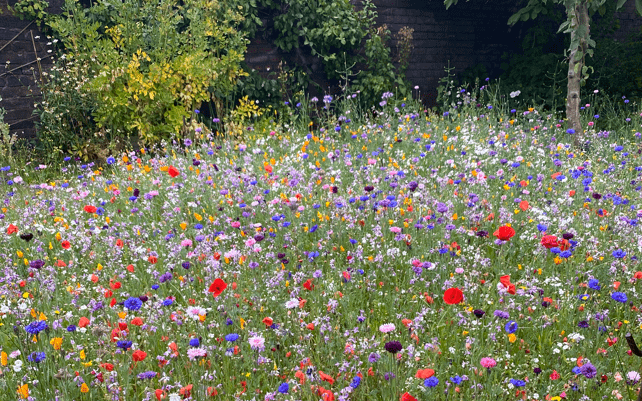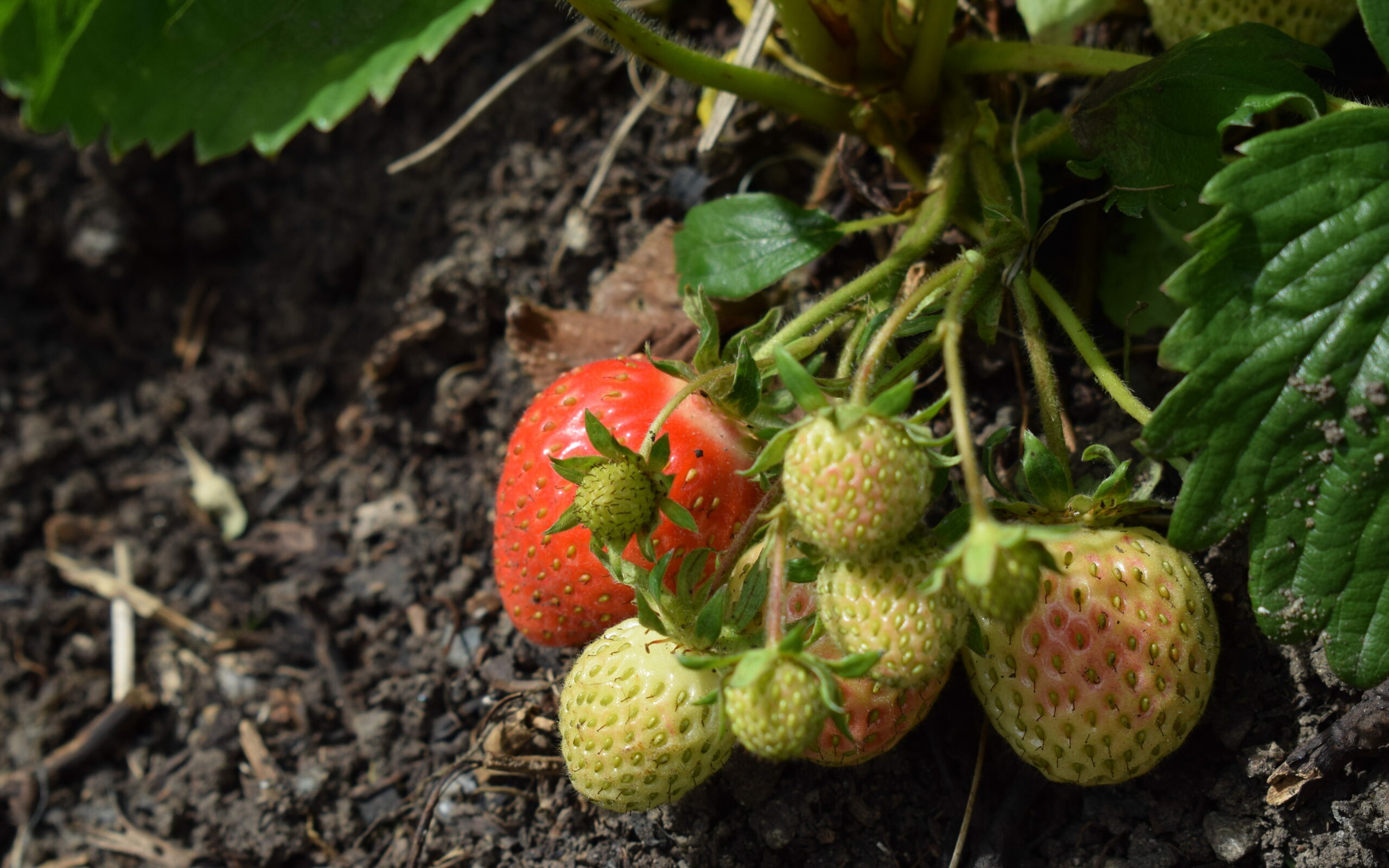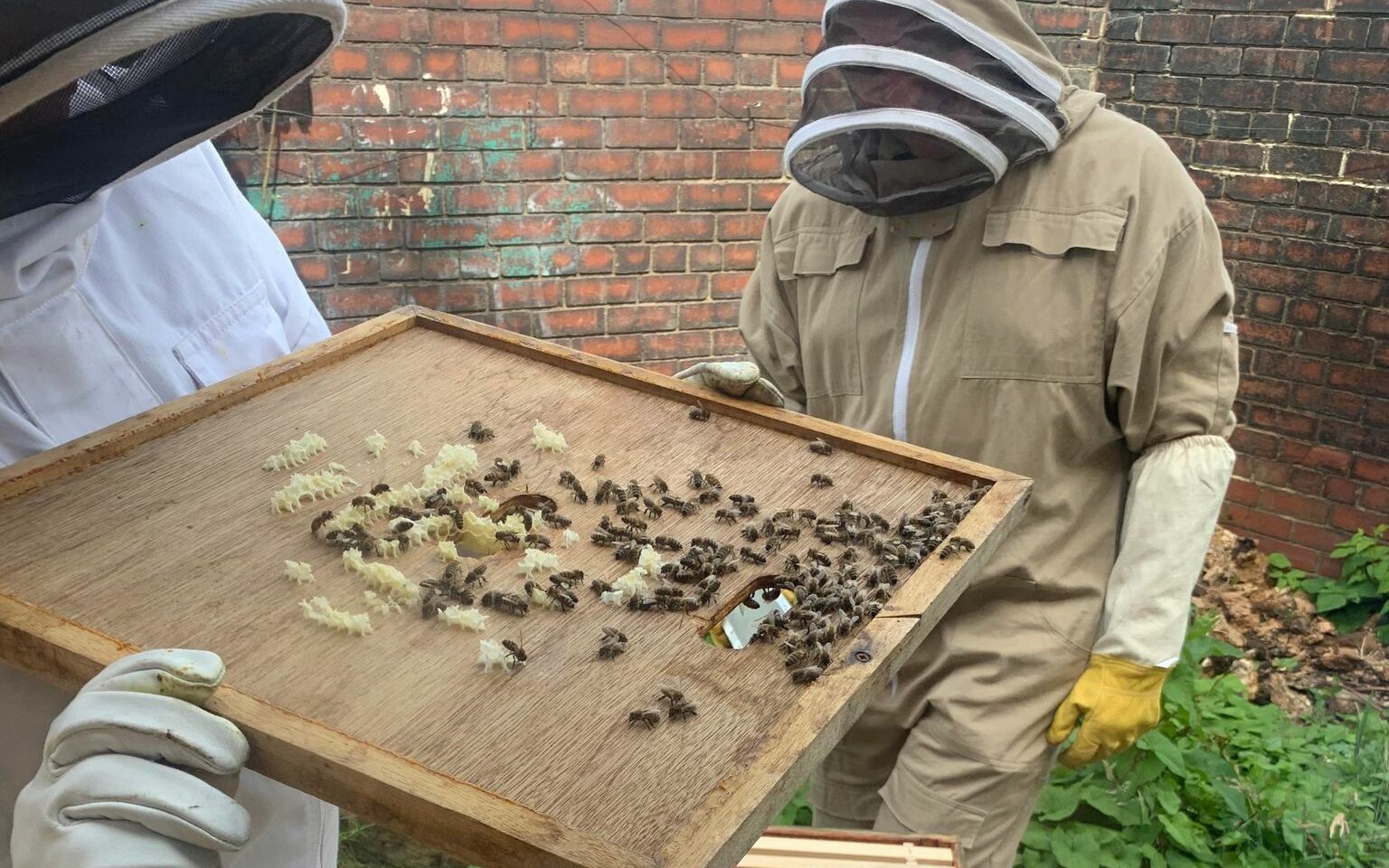Great Big Green Week is the UK’s biggest ever celebration of community action to tackle climate change and protect nature.
From the 24th September – 2nd October 2022 the greatest, biggest, greenest week the UK has ever seen will is taking place. We’re celebrating by taking a look at the Outback and the many great green initiatives it co-ordinates, hosts and adopts!
Situated in a densely populated area, amongst many terraced houses and industrial parks, on the outskirts of the town centre, The Outback is surrounded by urban space. There are a range of environmental and ecological advantages of The Outback, which contribute to a mini-ecosystem in the heart of Park ward.
The building

The building itself was built in 2011 and is made from an agricultural by-product, straw. It is therefore inherently sustainable as the very materials it is built with are rapidly renewable (opposed to timber which has a much longer regeneration period) and have a low carbon footprint.
Installed to complement the straw bale building, the green roof contributes to the Garden’s flora and fauna. The environmental benefits include: storm water management, improved air quality and environmental masking.
The garden

The Outback Garden is home to many plants, crops and local wildlife; all of which are a result of the organic ethos and practices we adopt. The measures in place ensure the garden is self-sustaining (just like the communities we strive to build) and biodiverse, such as:
Organic growing

We do not use any chemicals in the garden whatsoever. We use organic growing methods to keep our plants healthy and edibles delicious. This means nourishing our plants from the ground up by using manure to mulch, composting and leaf mould. Additionally, we facilitate a natural soil structure and help lock-in carbon, through no dig gardening.
Once established, we feed plants with comfrey tea to help overall growth and encourage better flowering, as well as more vigorous growth in our perennials and mature fruiting shrubs and trees. To reduce pests, we implement companion planting methods, crop rotations and look out for signs of pests and diseases. Instead of eliminating pests, we work with nature to enhance our eco-system.
Creating a haven for wildlife

While enjoyed by over 500 local people throughout the year, the Outback Garden is also popular with a variety of wildlife and many species of minibeasts. We attract insects and pollinators into the garden with our wildflower meadow, which not only looks beautiful but is a great source of nectar made by the bees that live in the two beehives onsite.
The beehives are a popular feature at The Outback, where we host Park Ward Pollinators; a local community project. Our ‘pollinators’ come together every Tuesday morning to care for two community beehives, share skills and look after the habitat for our bees and other wildlife.
The garden has many hidden nooks and biodiverse spaces. From planters to ponds, woodland to wetland; all areas have been considerately built to invite a multitude of creatures and animals. Our wildlife pond attracts frogs, newts, pond insects and vertebrates, while our woodland area and wood pile shelters hedgehogs, squirrels, voles and mice with a bug hotel for our smaller residents in the winter months.
Other visitors to The Outback include badgers, foxes, bats and shrews. Our bird feeders are also popular amongst a variety of indigenous bird species and some plucky squirrels.
Environmentally friendly practices
We reduce, reuse and recycle where ever possible and we’re always looking for new uses for old containers or materials, so we can extend their lifecycle – especially if they are made from plastic.
Almost all plants are planted from seeds, many of which have been gathered from previous crops, reducing the heavy carbon footprint that bought plants bring. And to ensure we are able to reduce our reliance on utilities, we have implemented a system of water butts to capture the rain.
To find out more about the great work The Outback does and the green practices it follows, please head to the dedicated webpage, via the button below:
